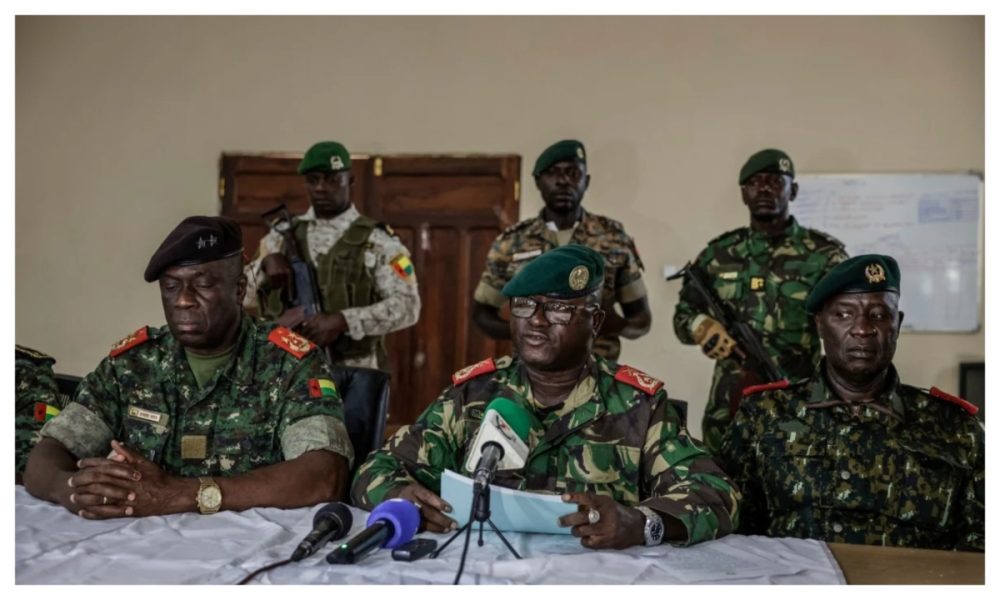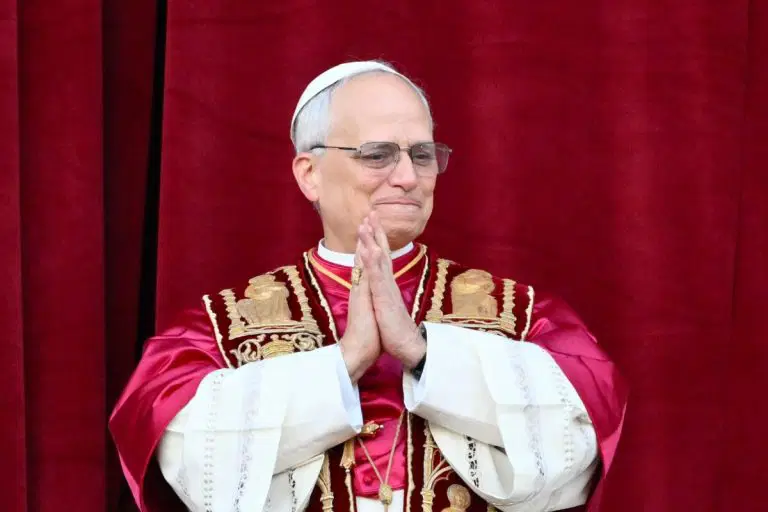Headline
7 Things To Know About Daylight Saving Time As It Ends Sunday

At 2 a.m. on Sunday, Nov. 3, it’s time to set clocks back one hour as daylight saving time (DST) comes to an end.
This yearly time change has an interesting history, and we’ve gathered some fascinating details about its origins and unique practices worldwide.
1. A Bug Hunter’s Idea Sparked Daylight Saving Time
In 1895, George Hudson, a New Zealand entomologist, conceptualized the modern idea of DST. His motivation was simple yet unusual: Hudson wanted more sunlight after work during summer so he could go bug hunting. He proposed a two-hour time shift to the Wellington Philosophical Society, though the idea gained little traction at first. In 1905, British builder William Willett suggested a similar concept, advocating for seasonal time changes to maximize daylight. Willett’s idea reached British Parliament in 1909, and by 1916, the United Kingdom officially adopted DST.
READ ALSO: 33m Nigerians To Face Food Crisis In 2025 – Report Food
2. Germany Led the Way in Observing Daylight Saving Time
Germany became the first country to officially implement DST on April 30, 1916, as a wartime measure to conserve electricity. This change was quickly followed by the United Kingdom, which introduced “summer time” soon after.
3. It’s Daylight ‘Saving’ – Not ‘Savings’
While it’s often called “daylight savings time,” the correct term is “daylight saving time” – without the extra “s.”
4. The United States Standardized DST in 1966
In the United States, Congress first passed a national law for DST during World War I in 1918, allowing states to decide whether they’d continue the practice after the war ended. The idea resurfaced during World War II, again as a fuel-saving measure. But it wasn’t until the Uniform Time Act of 1966 that DST became widely recognized across the country. Congress later set DST to start in March and end in November beginning in 2007.
READ ALSO: UK Navy Ship Docks In Lagos For Joint Military Exercise
5. Some States Don’t Observe Daylight Saving Time
While DST is a widespread practice in the U.S., it’s not universal. Hawaii and parts of Arizona, among a few other areas, do not observe DST due to their unique daylight needs and climate.
6. DST Affects More Than Just Clocks
Daylight Saving Time impacts more than just our clocks—it affects various sectors and activities. Public transportation, broadcasting, medical schedules, and even agriculture are all influenced by the time shift. Airlines and train schedules can become complicated, with some regions observing DST and others not. Farmers also face challenges since their routines are closely tied to sunrise and sunset, which do not change with the clock.
7. DST Can Impact Health and Productivity
The time change disrupts the body’s natural circadian rhythm, which regulates sleep and wake cycles. Studies have shown that adjusting clocks can lead to sleep deprivation, resulting in reduced productivity, impaired cognitive function, and even increased risk of heart attacks and strokes. On the Monday following the “spring forward” time change, there is often a noticeable spike in workplace accidents and injuries, as people struggle to adapt to the lost hour.
Source: Vanguard
Headline
Coup: Guinea-Bissau Junta Releases Six Held Opposition Politicians

Guinea-Bissau’s ruling junta on Tuesday released six members of the political opposition who had been detained since a coup last month.
The six freed opposition members are said to be close associates of Domingos Simoes Pereira, head of the PAIGC party that led the country to independence in 1974.
Pereira has been in custody since the coup.
In a statement by the High Military Command, the junta’s governing body, the releases are described as a sign of good faith and a step towards the return to constitutional normality and respect for international rights.
READ ALSO:Why West African Troops Overturned Benin’s Coup But Watched Others Pass
The army seized power on 26 November after ousting outgoing President Umaro Sissoco Embalo in the wake of a presidential vote.
After taking over, the military suspended the electoral process and announced it would take control of the West African country for a period of one year.
Recall that another opposition candidate, Fernando Dias, took refuge in Nigeria’s embassy, which granted him asylum, while Embalo fled the country after being briefly detained by the military at the time of the coup.
Meanwhile, Senegal’s Foreign Minister, Cheikh Niang, led a delegation to Guinea-Bissau, where he met with detained opponents and requested their release.
Headline
7 Territories Still Under Colonial Rule

Even though most nations became independent in the last century, some territories are still ruled by other nations.
Contents
1. Western Sahara
2. Guam
3. American Samoa
4. United States Virgin Islands
5. Falkland Islands / Malvinas
6. Gibraltar
7. Bermuda
Many of them remain on the United Nations list of non-self-governing territories, meaning they have not completed the process of decolonization. These places usually depend on bigger countries for laws, passports, defence, or political control.
In this article, Nigerian Tribune highlights 7 territories still under colonial rule:
READ ALSO:Nigeria Ranks World’s 102nd Happiest Nation, US, Germany Not Among 20 Top Counties
1. Western Sahara
Western Sahara remains one of the world’s biggest unresolved colonial issues. Morocco controls most of the territory, but the Polisario Front wants independence for the Sahrawi people. The UN is still trying to help both sides agree on a peaceful solution.
2. Guam
Guam is an important US territory in the Pacific, used heavily for American military operations. The US oversees its defence and foreign relations.
People living there are US citizens, but they cannot vote in presidential elections and do not have full representation in Congress.
READ ALSO:FULL LIST: US To Review Green Cards From 19 ‘Countries Of Concern’ After Washington Shooting
3. American Samoa
American Samoa has more local control than Guam, but the United States still decides immigration, defence, and foreign affairs.
Residents are considered US nationals and must apply if they want full citizenship.
4. United States Virgin Islands
The US Virgin Islands have their own legislature, but the United States makes major constitutional and political decisions. The territory depends heavily on US federal support.
5. Falkland Islands / Malvinas
The Falkland Islands remain controlled by the United Kingdom (UK), but Argentina has long disputed this claim, having been in control of the Islands for a few years before 1833.
The people living there voted strongly to stay British, yet the sovereignty dispute continues to appear in the UN.
READ ALSO:Six Countries With Highest Number Of Billionaires In 2025
6. Gibraltar
Gibraltar sits at the Southern tip of Spain. The United Kingdom controls it, but Spain insists the territory belongs to them.
Gibraltarians have repeatedly voted in favour of remaining British, but the dispute is still discussed within the UN Decolonisation Committee.
7. Bermuda
Bermuda is a British Overseas Territory situated in the North Atlantic Ocean. Although it manages most of its own internal affairs and enjoys a strong economy with modern facilities, the United Kingdom still handles its defence and represents it in global matters.
Headline
Russia-Ukraine War: Pope Leo Calls For Global Christmas Truce

Pope Leo XIV on Tuesday renewed his call for a global truce on Christmas Day, saying he felt “great sadness” after Russia “apparently rejected a request” for a pause in fighting.
Speaking to reporters at his residence in Castel Gandolfo near Rome, the Pope urged all sides involved in conflict to observe at least one day of peace.
“I am renewing my request to all people of goodwill to respect a day of peace — at least on the feast of the birth of our Saviour,” Leo said.
Recall that Russia invaded Ukraine in February 2022 and has repeatedly turned down calls for a ceasefire, arguing that any pause would give Ukraine a military advantage.
READ ALSO:Russian Strikes Kill Five In Ukraine, Cause Power Outages
“Among the things that cause me great sadness is the fact that Russia has apparently rejected a request for a truce,” the pope said.
Referring to conflicts worldwide, Leo added, “I hope they will listen and there will be 24 hours of peace in the whole world.”
The appeal came as fighting continued in eastern Ukraine. On Tuesday, Ukrainian forces withdrew from a town after heavy battles with Russian troops. Russian strikes killed three civilians and left thousands without power during winter temperatures.
READ ALSO:Trump Blasts Ukraine For ‘Zero Gratitude’ Amid Talks To Halt War
There was no indication of progress toward ending the war after separate meetings last weekend in Miami between the United States officials and negotiators from Russia and Ukraine. The conflict is nearing four years with no settlement in sight.
Earlier this month, Pope Leo met Ukrainian President Volodymyr Zelensky. When asked whether he would accept Zelensky’s invitation to visit Ukraine, the pope said, “I hope so,” while noting that it was not possible to say when such a visit could happen.
Leo also warned that efforts to secure peace without European diplomatic involvement were “unrealistic”, expressing optimism that President Donald Trump’s proposed peace plan could bring a “huge change” to the transatlantic alliance.

 News3 days ago
News3 days agoPHOTOS: New Era In Furupagha-Ebijaw As Okpururu 1 Receives Staff Of Office

 News2 days ago
News2 days agoUBTH CMD Marks 120 Days In Office, Expresses Commitment To Providing Conducive Working Environment

 News3 days ago
News3 days agoFG Declares Public Holidays For Christmas, New Year Celebrations

 News3 days ago
News3 days agoFIRS Confirms NIN As Tax ID

 News3 days ago
News3 days agoOPINION: Gumi And His Terrorists

 News3 days ago
News3 days agoOPINION: My Man Of The Season

 News3 days ago
News3 days agoOPINION: Christmas And A Motherless Child

 Metro2 days ago
Metro2 days agoFintiri Pardons Man Sentenced To Death For ‘Killing Herdsman In Self-defence’, Others

 News3 days ago
News3 days agoKWAM 1 Withdraws From Awujale Race, Ends Court Challenge

 Metro2 days ago
Metro2 days agoPetrol Tanker Crashes Into Akpabio’s Convoy, Kills Police Dispatch Rider


















